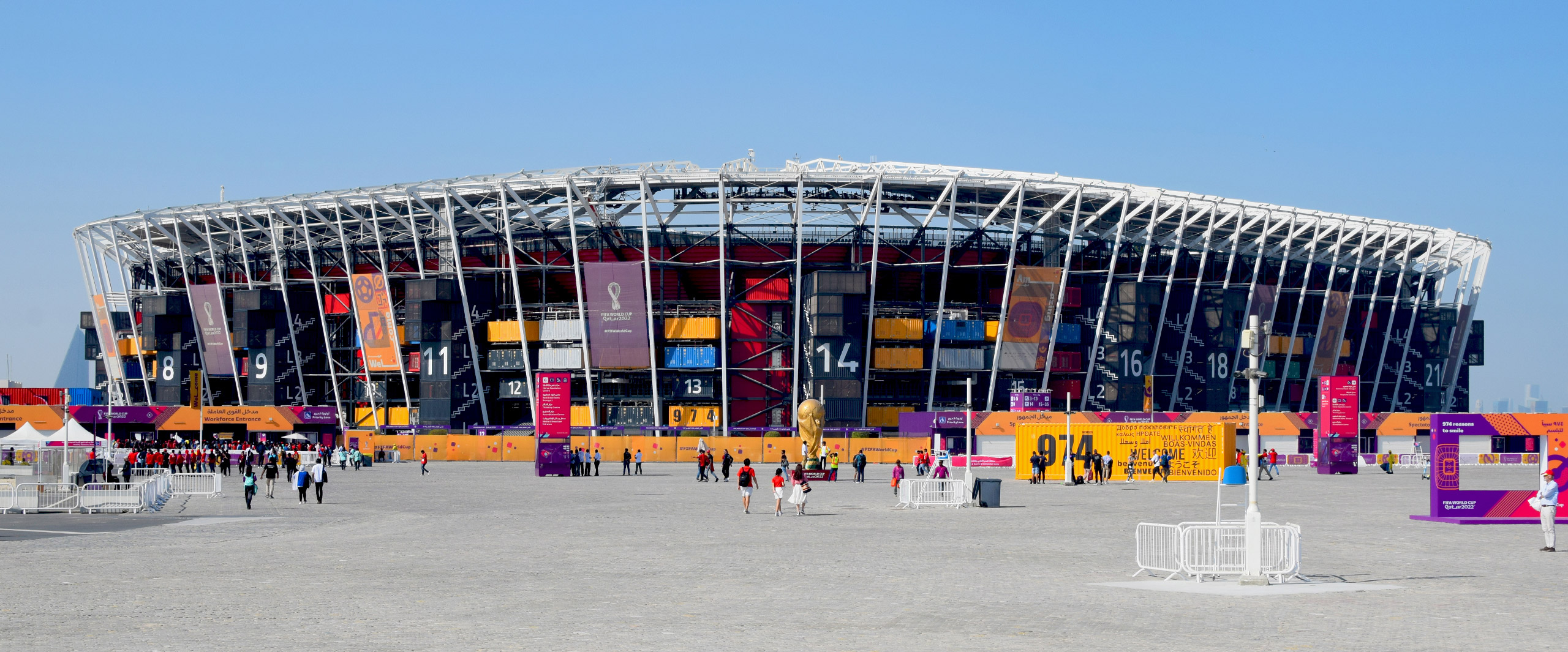The 2022 World Cup was not only the planet’s grandest sporting event but also a stage for groundbreaking architectural marvels to showcase their beauty and cutting-edge technology. Two stadiums in Qatar—Lusail Iconic and Ras Abu Aboud (974)—left a lasting mark with their advanced steel structures, elevating the global construction industry. At the same time, DaiDung Group, the Vietnamese enterprise supplying steel structures for these projects, boldly opened the door to the Middle East market for Vietnamese businesses.

Lusail Iconic Stadium: The largest venue of the 2022 World Cup, Lusail Iconic exemplifies the fusion of art and technology in architecture. Steel structures played a pivotal role in realizing its column-free domed roof, optimizing space and visibility for spectators. The outer steel cladding, designed with intricate lantern-like patterns inspired by Middle Eastern culture, lends the stadium a unique aesthetic and cultural significance.

Beyond aesthetics, the steel framework enhances the stadium’s sustainability. Recyclable steel minimizes environmental impact post-event, while integrated energy-efficient cooling systems maintain comfortable temperatures with reduced power consumption. After the tournament, the stadium can be repurposed into residential or commercial spaces, maximizing infrastructure use. Its robust steel structure ensures high load-bearing capacity, guaranteeing safety for tens of thousands of spectators in all weather conditions.
Constructing and erecting the steel framework for Lusail Iconic posed significant challenges. The massive domed roof demanded highly precise lifting systems to ensure safety and stability. Complex in size and shape, steel components required meticulous fabrication and rigorous quality checks before assembly. Qatar’s harsh desert climate—marked by high temperatures and sand-laden winds—complicated outdoor steel storage and construction. Engineers overcame these hurdles by applying anti-corrosion coatings and using cooling systems during construction to maintain quality.

In stark contrast, Ras Abu Aboud- 974, introduced a revolutionary concept—a fully demountable structure. Built using 974 shipping containers and modular steel frameworks, it embodies creativity and sustainability. Instead of permanent construction, its steel components were designed as modules, detachable and reusable for other projects post-World Cup. The steel framework drastically reduced construction time compared to traditional methods, cutting costs significantly.
Stadium 974 also excelled in resource efficiency. Recycled steel and optimized design slashed water consumption by 40% and minimized construction waste. It’s the world’s first fully demountable stadium, capable of being relocated or repurposed into facilities like schools or hospitals. Its open design, leveraging sea breezes for natural cooling, reduced reliance on air conditioning, boosting energy efficiency.

Fabricating and assembling the steel structure for Stadium 974 required stringent technical precision. Each steel module and container had to be uniformly sized for seamless assembly and disassembly without compromising structural integrity. Connections between modules needed high durability to withstand harsh weather while retaining flexibility. Transporting steel frameworks and containers from factory to site demanded careful planning to meet deadlines and optimize costs.
The Power of Steel Structures: Lusail and 974 demonstrate the boundless potential of steel in large-scale architectural projects. Steel delivers exceptional strength, load-bearing capacity, and design flexibility, enabling sustainable construction. It allows projects to be completed quickly while maintaining quality and aesthetics. Fewer load-bearing columns create open spaces and unobstructed views for spectators. Moreover, recyclable steel and demountable designs drive sustainable construction trends, reducing environmental impact.
These iconic projects, blending architectural brilliance with sustainable values, mark a milestone for Vietnamese enterprises penetrating the Middle East market. DaiDung Group, as a pioneering contractor, has successfully established its brand in this promising region, paving the way for others to follow.
